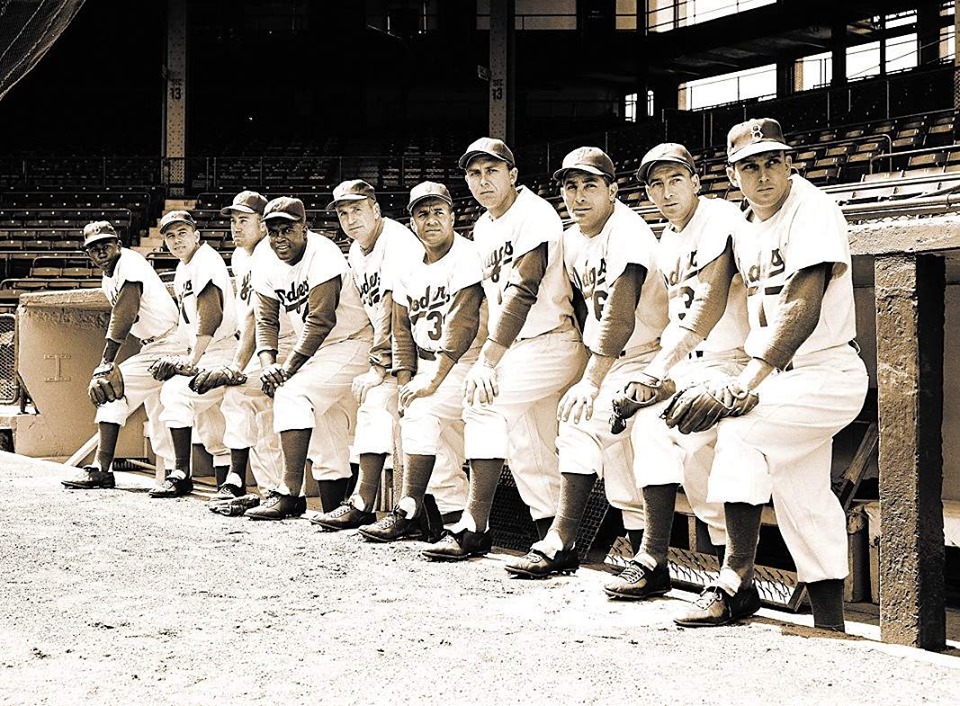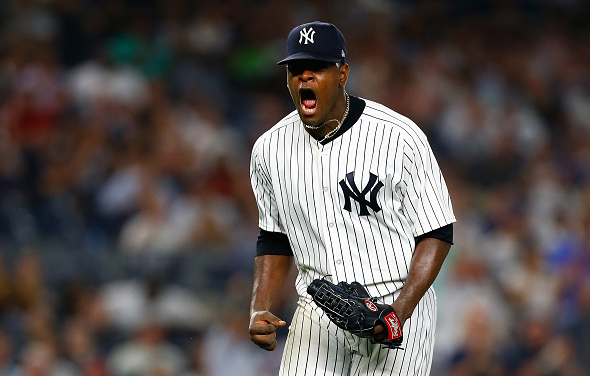Baseball, more than any other sport, is intertwined with the history of the United States. The World Series was first played more than 100 years ago in 1903, and the founding of the National League dates back to the 1870s. Great ballplayers have been the idols of American kids for more than a century. Names like Wagner, Ruth, DiMaggio, Robinson, and Mays are iconic, as are the names of the teams that these legends played for.
From 1947 to 1957, one of those great American baseball teams was the Brooklyn Dodgers. Diehard fans, enigmatic executives, and legendary players helped make the Dodgers one of the most fascinating ball clubs of all time. Acclaimed sportswriter Roger Kahn, who passed away on February 6, 2020, tells the story of those great Dodgers in his classic 1972 book, The Boys of Summer. I recently read Kahn’s book, and to honor his legacy, as well as the legacy of those outstanding Dodgers teams, I am reviewing his work for the Bronx Pinstripes community.
The Greatest Team On the Field
The Dodgers of the early ’50s were a spectacle. They were unbelievably talented, and undeniably controversial. They were the first team, thanks to the unconventional Branch Rickey, that was willing to break the baseball color barrier. These integrated Dodgers, led by Jackie Robinson, Roy Campanella, Carl Erskine, Billy Cox, and Pee Wee Reese, took the Major Leagues by storm in 1952 and ’53. Kahn, who covered the team for the New York Herald Tribune, recounts these two seasons in vivid detail.
On the field the Dodgers were the most exciting team in baseball. Kahn recalls signature Jackie Robinson moments that include game-winning steals of home and graceful plays at second base. He also recounts the fielding feats of shortstop Pee Wee Reese and right fielder Carl Furillo. Reese, who made error after error as a youngster, quickly became a vacuum in the middle infield. Furillo mastered the strange bounces that came with playing the unorthodox wall at Ebbets Field. Kahn’s storytelling makes you feel like you’re with him in the press box, cheering for the boys from Brooklyn.
Recaps of the 1952 and 1953 World Series games between the Yankees and Dodgers are excellent. Despite the fact that the Dodgers dominated the regular season, the team could not get over the hump in October. These great Brooklyn teams took on a reputation as chokers because of missed opportunities in the Fall Classic. Ironically, though, these bitter postseason heartbreaks added to the lure of the team. Kahn states that while fans may “glory in a team triumphant,” they truly “fall in love with a team in defeat.” Brooklyn had all the talent in the world, but the hated crosstown Yankees seemed to make all the big plays.
The Most Controversial Off of It
Off the field, the Dodgers were anything but boring. Kahn recounts some of the controversies that surrounded the team’s decision to integrate its roster. He gives the trials and tribulations of Jackie Robinson excellent treatment. Jackie’s separation from teammates at hotels on road trips is difficult to read about, but enlightening nonetheless.
Kahn gives readers a raw, unfiltered picture of what life was like for a ballplayer in the ’50s. On the road, players spent evenings at night clubs (at the time, games were almost exclusively played during the day). Kahn recalls the late-night shenanigans of the players he covered for the Herald Tribune, and the stories are both raunchy and hilarious. The world may have been a politer place during the 1950s, but the Brooklyn boys had their fair share of fun. I think most people will get a kick out of these stories. Be prepared, however, for some rather colorful language.
Exit Stage Right
The emotional heart of The Boys of Summer comes in the book’s second half. After describing the Dodgers in their heyday, Kahn takes time to explore what happened to these great ballplayers when they retired from the Majors. Kahn explains how these great athletes made peace with what he calls their “first death,” or the end of their time as strong, young superstars.
Because ballplayers made less money in the ’50s, most members of these iconic Dodger teams got regular jobs after leaving baseball. Kahn tells the story of the great pitcher Joe Black, who retired from baseball and became a school teacher. Black was the first African American pitcher to win a World Series game. He spent his retirement years teaching kids how to get beyond their biases and care for one another.
Other Dodgers were forced to deal with and overcome personal challenges. The relationship between Jackie Robinson and his son makes for extremely emotional and powerful reading. Kahn’s chapter on Roy Campanella, who was paralyzed in a tragic car accident, is incredibly inspiring. His description of the beautiful relationship between pitcher Carl Erskine and his disabled son is tremendous. These stories humanize the great Brooklyn Dodgers. Kahn shows us their greatest moments on the field, and then he shows us something even greater – their finest moments off of it.
The Verdict
The Boys of Summer by Roger Kahn is more than a great baseball book. It is a great American book. It covers America’s pastime, but it also covers American culture. Kahn explores the impact of MLB’s integration era on society, what it meant to be an athlete in the 1950s, and how sports can change lives. The book covers Kahn’s own relationship with baseball and how it shaped, not only his career as a sportswriter, but his love for his father.
If you love learning about the history of baseball, then I would highly recommend that you read The Boys of Summer. It could serve as a great companion piece for The New York Yankees of the 1950s by David Fischer, which covers the same period from a Yankees perspective.
The Boys of Summer is available in print, digital, and audible formats.
Up Next
Only one book review remains between now and the start of the 2020 regular season. For that review I’ll be taking a look at The Closer by Mariano Rivera and Wayne Coffey.




